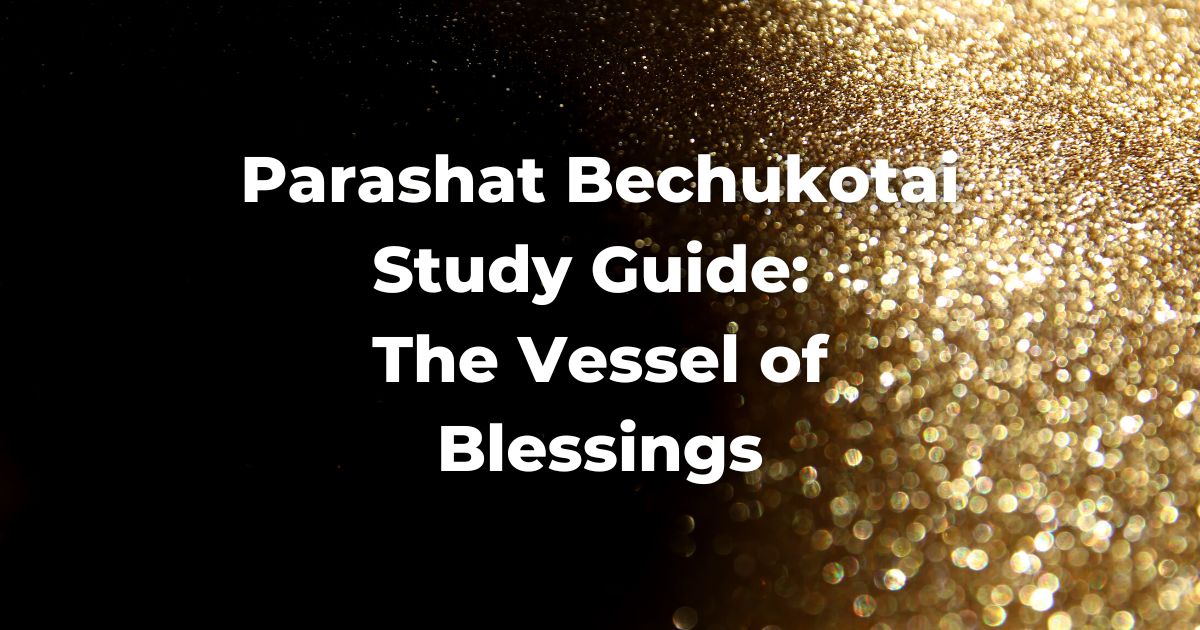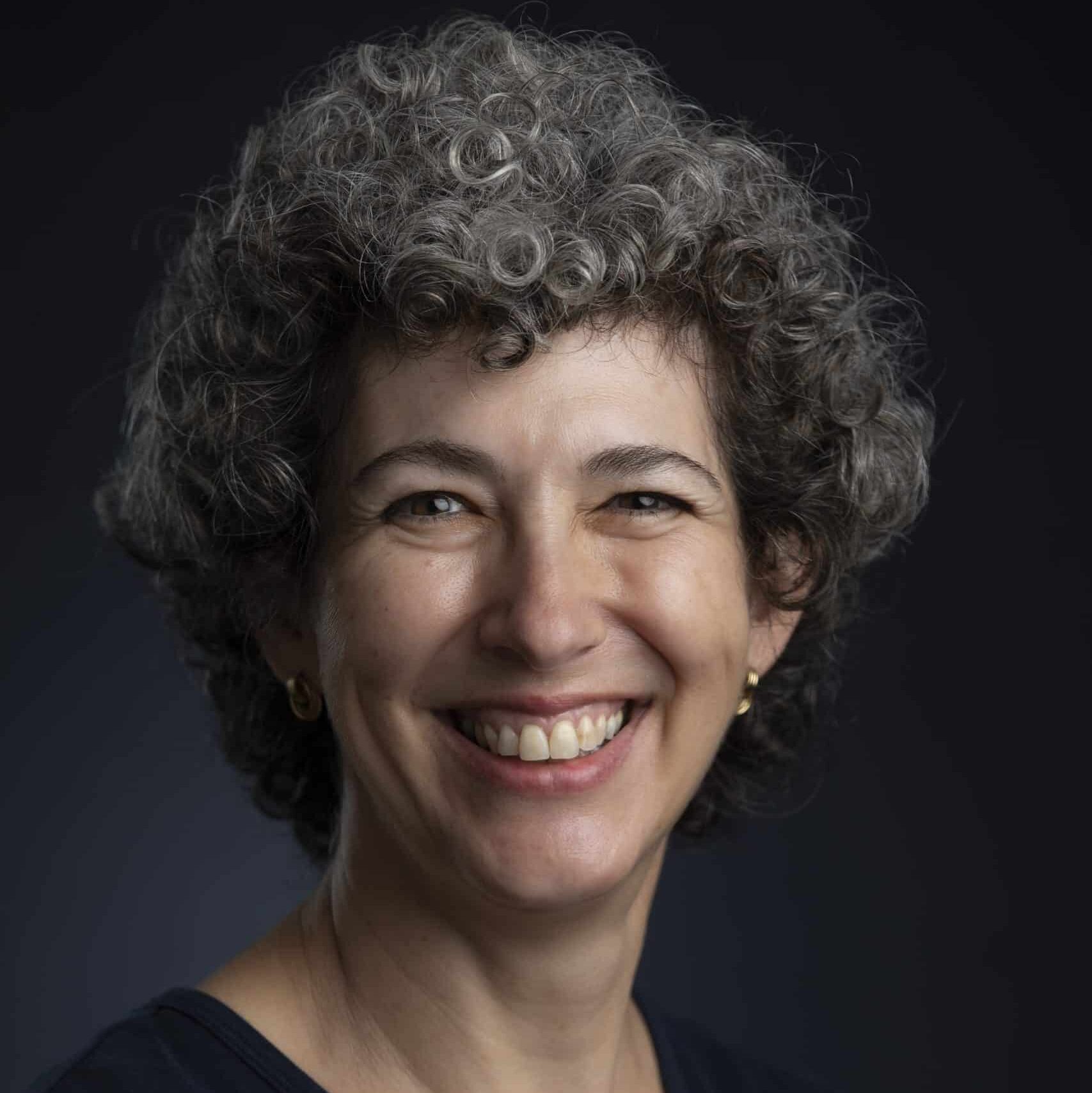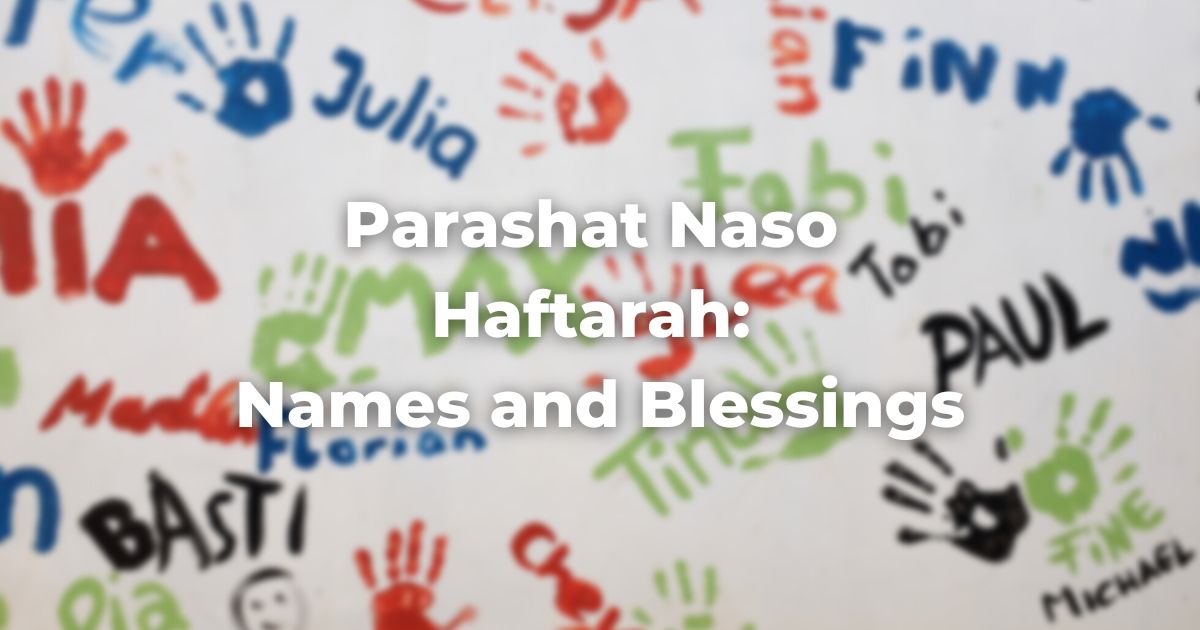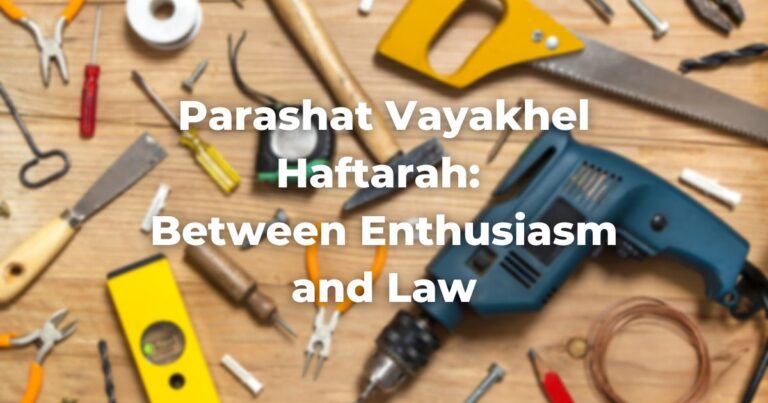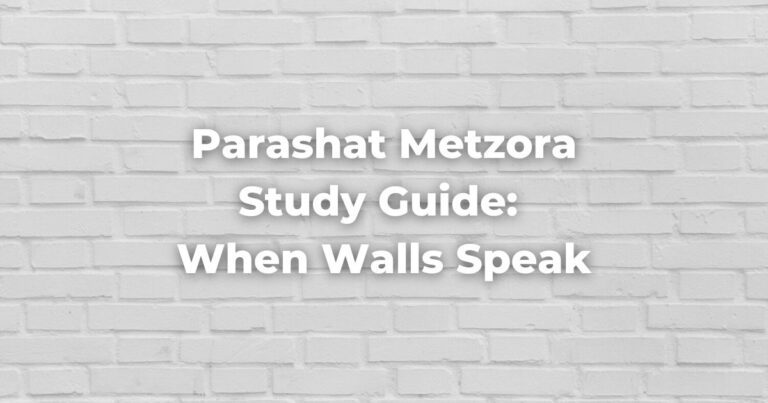Text: Vayikra 26:3-6
3 ‘If you walk in My statutes and keep My commandments, and perform them, 4 then I will give you rain in its season, the land shall yield its produce … 5 Your threshing shall last till the time of vintage … you shall eat your bread to the full, and dwell in your land safely. 6 And I will give peace in the land, and you shall lie down, and none will make you afraid; I will rid the land of evil beasts, and a sword will not go through your land.
- What areas of life will be blessed if the commandments are kept? Is there anything that you would add?
- What is the relationship between the opening words “I will give peace in the land” and the rest of the promises in verse 6?
- If there is peace in the land, the promise that “a sword will not go through your land” (verse 6) seems obvious. What do you think the TorahRefers to the first five books of the Hebrew Bible, the Tanakh, also called the Five Books of Moses, Pentateuch or the Hebrew equivalent, Humash. This is also called the Written Torah. The term may also refer to teachings that expound on Jewish tradition. Read more adds by this statement?
Commentary: Rashi on Vayikra 26:6
And I will give peace—Perhaps you will say, there is food and drink! But if there is no peace, then all this is nothing. Scripture, therefore, states after all these promises “I will give peace in the land”. Hence, we may learn that peace counterbalances everything. In a similar sense, it states: “Who makes peace and creates everything.”
- What is the logic in the order of the passage of the blessings?
- Why are the blessings of plenty worthless without a promise for peace?
- How does the line Rashi quotes from the morning tefillah (prayer) “makes peace and creates everything” support his idea? What could the word “and” in that line be replaced with?
Commentary: Malbim on Vayikra 26:6
And I will give peace in the land—after God promised them the blessings, God now promises the vessel that holds the blessings, which is peace, which contains all the blessings. … about this, it is said “makes peace and creates evil” (Isaiah 45:7)—for peace is the opposite of evil, just as the light is the opposite of darkness. Therefore, it says that peace counterbalances everything.
- What is the relationship of peace to all the other blessings?
- Malbim quotes the verse that is the basis for the line from tefilla that Rashi quoted: “makes peace and creates evil.” How does he understand the word “and” in this verse?
Commentary: Ibn Ezra on Vayikra 26:6
And I will give peace in the land—Among yourselves.
- What in verse 6 caused Ibn Ezra to understand this part to point to internal peace?
- How do you understand the relationship of internal peace to the rest of verse 6?
See more: Parashat Bechukotai
Originally posted as part of the Conservative Yeshiva at the Fuchsberg Jerusalem Center’s Torah Sparks. Support Torah learning from the Fuchsberg Jerusalem Center/Conservative Yeshiva for leaders and seekers around the world here.
Authors
-

Vered Hollander-Goldfarb teaches Tanach and Medieval Commentators at the Conservative Yeshiva and is a regular contributor to Torah Sparks, FJC’s weekly message on the weekly Torah portion. She received her M.A. in Judaic Studies and Tanach from the Bernard Revel Graduate School of Yeshiva University and studied at Bar-Ilan University and the Jewish Theological Seminary. Before making aliyah, Vered taught at Ramaz School and Stern College in New York.
View all posts -



The Fuchsberg Jerusalem Center (FJC) is a home in the heart of Jerusalem where leaders and seekers can find an authentic place in Jewish tradition to call their own. FJC offers opportunities to study, pray and explore within an egalitarian and inclusive setting, creating multiple pathways for finding personal and communal meaning.
View all posts

